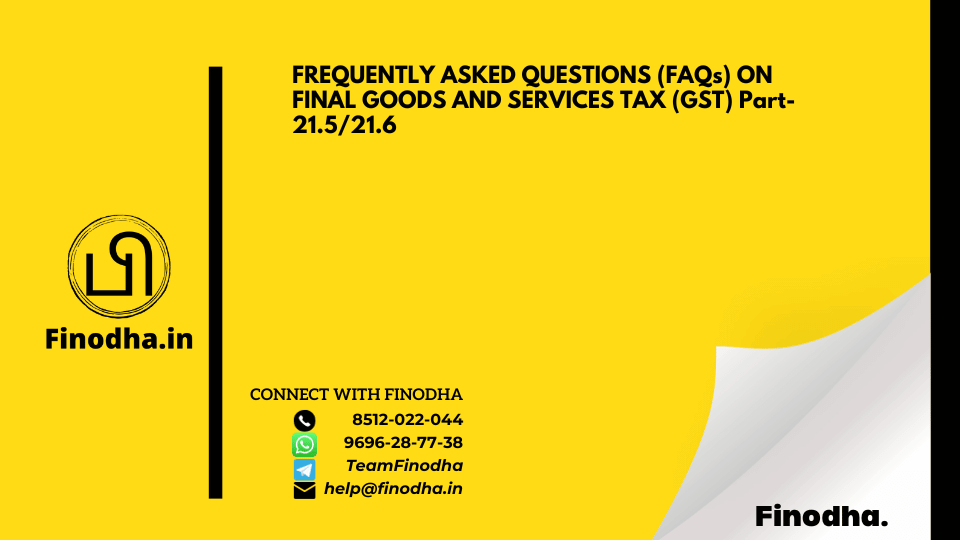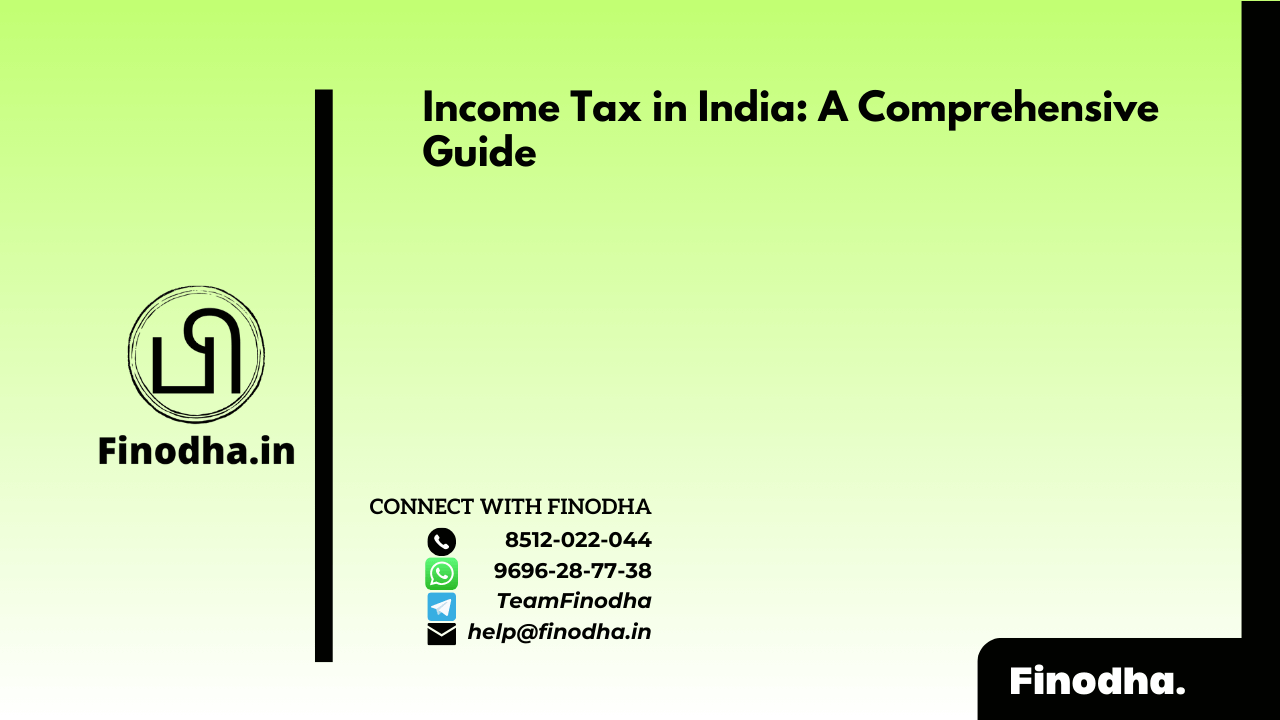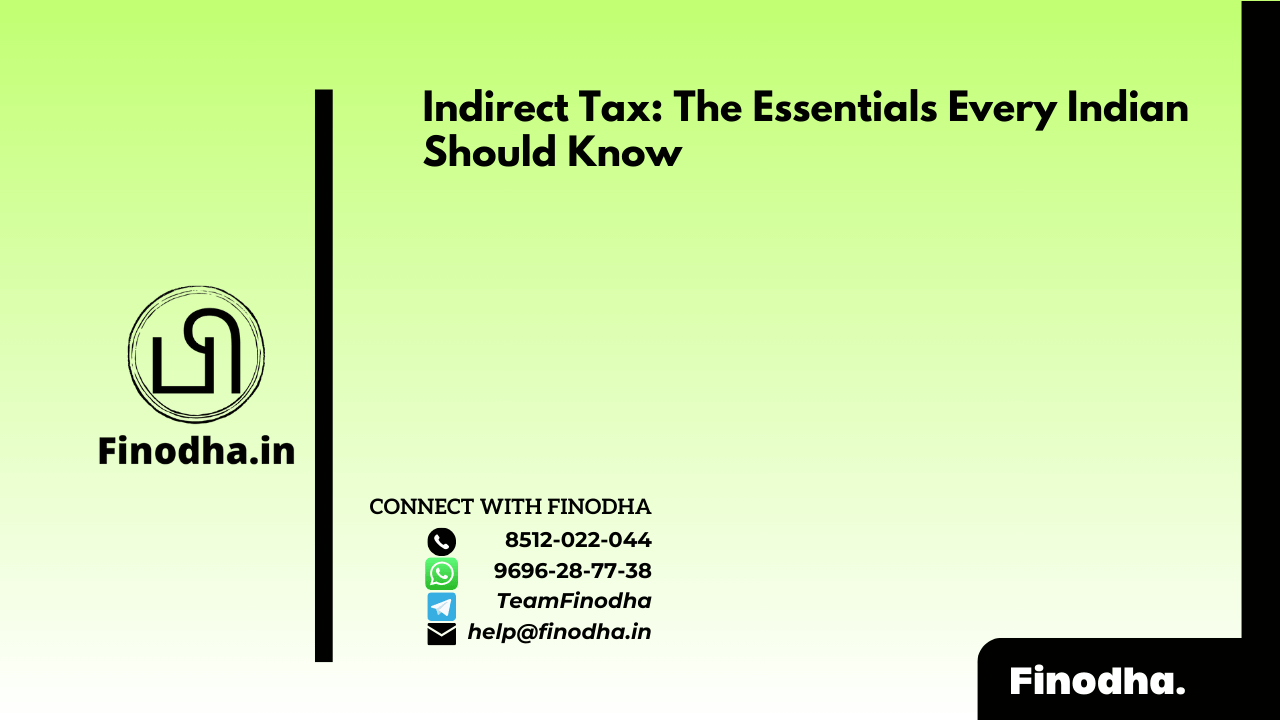Important Keyword: Notification No. 48/2017-Central tax, Circular No. 14/14/2017-GST, Circular No. 35/2016-Customs, Circular No. 9/2017-Customs, Section 54 CGST Act 2017, Rule 96 CGST Rules, Rule 89 CGST Rules 2017, Section 5 IGST Act 2017, Section 3(5) Customs Tariff Act 1975, Section 2(10) IGST Act 2017, Section 7(2) IGST Act 2017, Section 5(1) IGST Act, Section 12 Customs Act 1962, Notification No. 64/2017-Customs, Notification no. 52/2003-Customs, Section 7(1)(b) CGST Act 2017, Section 14 IGST Act 2017, Notification no. 06/2018-Integrated tax, Section 31(3)(f) CGST Act, Notification no. 65/2017-Customs, Notifications No. 39/2017-Customs, Notification No. 09/2017- Integrated Tax.
3rd Edition: 15th December 2018
(Note: Changes announced in GST Council meeting held on 22nd December 2018 are being incorporated and the updated edition will be uploaded shortly)
Table of Contents
Contents
- Overview of Goods and Services Tax (GST)
- Levy of and Exemption from Tax
2.1 Composition Levy - Registration
3.1 Amendment of Registration
3.2 Cancellation of Registration - Meaning and Scope of Supply
- Time of Supply
- Valuation in GST
- GST Payment of Tax
7.1 TDS Scheme - Electronic Commerce and Tax Collected at Source
- Job Work
- Input Tax Credit
- Concept of Input Service Distributor in GST
- Returns Process
- Assessment and Audit
13.1 Invoice, Credit and Debit Note
13.2 Accounts and Records under GST
13.3 E Way Bill - Refunds
14.1 Refunds by UINs - Demands and Recovery
- Appeals/Revision
- Advance Ruling
- Inspection, Search, Seizure and Arrest
- Offences, Penalties, Prosecution and Compounding
- Overview of the IGST Act
- Exports and Imports
21.1 Exports
21.2 Export of Services
21.3 Duty Drawback Scheme
21.4 Special Economic Zone(SEZ)
21.5 Export Oriented Units
21.6 Imports - Place of Supply of Goods and Service
22.1 Place of Supply of Goods
22.2 Place of Supply of Services (Location of supplier as well as recipient are in India)
22.3 Place of Supply of Services (Location of supplier or recipient is outside India) - GSTN and Frontend Business Process on GST Portal
- Transitional Provisions
- Anti-profiteering provisions
CENTRAL BOARD OF INDIRECT TAXES & CUSTOMS
NEW DELHI
21.5 Export Oriented Units
Q 57. Whether the exemption granted to EOUs pre GST regime will continue in the post GST regime?
Ans. Imports by EOUs: The EOUs will continue to get the exemption of Customs duty as prevailed before the GST regime vide Notification No. 52/2003-Cus dated 31.03.2003.
The imports by EOUs are to be levied IGST and compensation cess as per the Notification No. 59/2017-Cus dated 30.06. 2017. However, as part of export package, imports by EOUs have been temporarily exempted from payment of IGST and compensation cess up to 31st March, 2019 vide Customs Notification No. 65/2018-Customs dated 24.09.2018.
Supply to EOUs: A supply to EOU is considered as deemed exports in terms of Notification No. 48/2017-Central tax dated 18th October, 2017. Supply has to be made on payment of Goods and Services Tax following the procedure as prescribed vide Circular No. 14/14/2017-GST dated 06.11.2017 but the refund of such Goods and Services Tax can be claimed either by supplier or receiver EOU.
Q 58. Is there any procedural change in import clearance by EOUs post introduction of GST?
Ans. For import of goods, EOUs are required to follow Rule 5 of Customs (Import of goods at Concessional rate of Duty) Rules, 2017 instead of earlier procedure of obtaining procurement certificate. Under this, EOU has to submit a copy of requirement of goods to be imported to the jurisdictional Customs Officer as well as to the Customs Officer at port of import. On the basis of the declaration by EOU, Customs Officer at port will allow the clearance of goods giving benefit of exemption notification No. 52/2003 dated 31.03.2003. There is no requirement of separate continuity bond to be submitted by EOU as per the requirement under Customs (Import of goods at Concessional Rate of Duty) Rules, 2017 as B-17 bond, being a general purpose bond will serve the said purpose.
The inter unit transfer would be on invoice on payment of applicable Goods and Services Tax taxes. However, such transfer would be without payment of custom duty. The supplier unit will endorse on such documents the amount of custom duty, availed as exemption, if any, on the goods intended to be transferred. The recipient unit would be responsible for paying such basic customs duty, as is obligated under Notification no. 52/2003-Cus dated 31-3-2003 (as amended), when the finished goods made out of such goods or such goods are cleared in DTA.
(Circular No. 35/2016-Customs dated 29.06.17 and 29/2017-Customs dated 17.07.2017)
Q 59. Can EOUs take input tax credit of the IGST paid on imports?
Ans. Yes. EOUs can avail credit of Integrated Goods and Services Tax paid which can be used by them for payment of IGST for local supply of goods manufactured by them.
Q 60. Are EOUs entitled for refund of IGST and what is the time limit for obtaining refund on the IGST paid?
Ans. Yes. EOUs are entitled for refund of Integrated Goods and Services Tax paid on export or refund of accumulated input tax credit(ITC) on account of exports made under bond/LUT. As per section 54 of CGST Act, 2017, a refund application may be filed within two years from the relevant date by EOUs. The application in form RFDOIA has to accompanied with the documents as prescribed under Rule 89 of CGST Rules, 2017 for claiming refund of ITC. Refund of Integrated Goods and Services Tax on exports is available as per Rule 96 of CGST Rules and shipping bill filed is deemed to be application filed for refund. 90% of the total amount claimed as refund will be granted within 10 days of making application or within 7 days of issuance of acknowledgement of refund application. Balance amount of 10% will be granted after verification of documents furnished by the applicant.
Q 61. Will supply of goods from one EOU to another EOU termed as inter unit transfer and whether the same will attract IGST?
Ans. Yes, the EOUs have to pay applicable Integrated Goods and Services Tax on inter unit transfer also. The basic customs duty exempted on inputs of supplier unit utilized in such transferred goods would have to be reversed by the recipient EOU at the time of clearance into DTA.
Q 62. What are the conditions for DTA sales by EOUs?
Ans. DTA sale of goods by EOU is subject to fulfilment of following conditions:
- Fulfilment of maintaining positive Net Foreign Exchange Earnings (NFE)
- Payment of applicable GST on the product under DTA sale
- Reversal of the Basic Customs Duty exemption availed by the unit on the inputs used in the manufacture of products under DTA Sale.
Q 63. Can the EOU use MEIS/SEIS scrips for payment of IGST or CGST?
Ans. No, the scrips cannot be used for payment of IGST or CGST.
Q 64. What will be the value to be taken for levy of IGST on goods imported by EOUs?
Ans. IGST is levied on the value of imported goods including Customs duty and Customs Cess levied thereon.
21.6 Imports
Q 65. How will imports be taxed under GST?
Ans. Import of Goods and Services are treated as deemed inter-state supplies and Integrated Goods and Services Tax is levied on import of goods and services in to the country. The Integrated Goods and Services Tax on import of goods is leviable under the provisions of Section 5 of the Integrated Goods and Services Tax Act, 2017 read with Section 3(5) of the Customs Tariff Act, 1975 and shall be levied at the time of imports along with the levy of the applicable Customs duties on the value in accordance with Section 3 of the Customs Tariff Act, 1975.
Q 66. What is import of goods under the GST regime? How are they taxed?
Ans. The import of goods has been defined in sub-section (10) of Section 2 of the Integrated Goods and Services Tax Act, 2017 as bringing goods into India from a place outside India.
The Integrated Goods and Services Tax Act, 2017 provides that the integrated tax on goods shall be in addition to the applicable Basic Customs Duty (BCD) which is levied as per the Customs Tariff Act. In addition, GST compensation cess, may also be leviable on certain luxury and de-merit goods under the Goods and Services Tax (Compensation to States) Cess Act, 2017.
Q 67. What valuation is to be adopted for levying integrated tax and compensation cess?
Ans. The value of the goods for the purpose of levying Integrated tax as well as compensation cess shall be assessable value plus Customs Duty levied under the Act, and any other duty chargeable on the said goods under any law for the time being in force as an addition to, and in the same manner as, a duty of customs.
For instance: Suppose the assessable value of an article imported into India is Rs. 100/-. Basic Customs Duty is 10% ad-valorem; SWC- 10%; Integrated tax rate is 18% and compensation cess is 15%. The taxes will be calculated as under:
| Particulars | Duty |
| (A) Assessable Value | Rs. 100/- |
| (B) Basic Customs Duty@10% | Rs.10/- |
| (C) Social Welfare Charge @10% | Rs.1/- |
| (D) Value for Integrated Tax | Rs.111/- |
| (E) Integrated Tax @18% | Rs.19.98 |
| (F) Value for Compensation Cess | Rs.111 |
| (G) Compensation Cess @ 15% | Rs. 16.65 |
| (H) Total Duty ( B+C +E+G) | Rs. 47.63 |
Q 68. Whether Anti-dumping duty/ safeguard duty are to be added for determining the value for integrated tax?
Ans. Yes. In cases where imported goods are liable to Anti-Dumping Duty or Safeguard Duty, value for calculation of IGST as well as Compensation Cess shall also include Anti-Dumping Duty amount and Safeguard duty amount. Let’s say in the above case if Safeguard duty is Rs.20/-, the assessable value for integrated tax as well as compensation cess shall be Rs. 131/-. The taxes calculation chart is as under:
| Particulars | Duty |
| (A) Assessable Value | Rs. 100/- |
| (B) Basic Customs Duty@10% | Rs.10/- |
| (C) Social Welfare Charge @10% | Rs.1/- |
| (D) Safeguard Duty | Rs.20/- |
| (E) Value for Integrated Tax | Rs.131/- |
| (F) Integrated Tax @18% | Rs.23.58 |
| (G) Value for Compensation Cess | Rs.131/- |
| (H) Compensation Cess @ 15% | Rs. 19.65 |
| (I) Total Duty ( B+C +D+F+H) | Rs. 74.23 |
Q 69. Whether GST is leviable on baggage imports?
Ans. Passenger Baggage are exempted from IGST as well as compensation cess. The basic customs duty at the rate of 35% and the applicable education cess shall be leviable on the value which is in excess of the duty free allowances provided under the Baggage Rules, 2016.
Q 70. Please explain the tax treatment of goods imported into India and deposited in a warehouse and sold while in warehouse before clearance from Customs
Ans. The Customs Act, 1962 provides for removal of goods from a customs station to a warehouse without payment of duty. The said Act has been amended to include ‘warehouse’ in the definition of “customs area” in order to ensure that an importer would not be required to pay the Integrated tax at the time of removal of goods from a customs station to a warehouse.
The “transfer/sale of goods while being deposited in a customs bonded warehouse” is a common trade practice whereby the importer files an into-bond bill of entry and stores the goods in a customs bonded warehouse and thereafter, supplies such goods to another person who then files an ex-bond bill of entry for clearing the said goods from the customs bonded warehouse for home consumption.
As per section 7(2) of the IGST Act, 2017, the supply of goods imported into the territory of India, till they cross the customs frontiers of India, is treated as a supply of goods in the course of inter-State trade or commerce. Further, the proviso to section 5(1) of the IGST Act provides that the integrated tax on goods imported into India would be levied and collected in accordance with the provisions of section 3 of the Customs Tariff Act, 1975. Thus, in case of supply of the warehoused goods, the point of levy would be the point at which the duty is collected under section 12 of the Customs Act, 1962 which is at the time of clearance of such goods under section 68 of the Customs Act.
The Customs Tariff Act has been amended and a sub-section (8A) has been inserted in section 3 of the CTA vide Finance Act, 2018, with effect from 31st March, 2018, so as to provide that the valuation for the purpose of levy of integrated tax on warehoused imported goods at the time of clearance for home consumption would be either the transaction value or the value as per section 3(8) of the CTA (i.e. valuation done at the time of filing the into-bond bill of entry), whichever is higher.
Thus, the integrated tax shall be levied and collected at the time of final clearance of the warehoused goods for home consumption i.e., at the time of filing the ex-bond bill of entry and the value addition accruing at each stage of supply shall form part of the value on which the integrated tax would be payable at the time of clearance of the warehoused goods for home consumption. In other words, the supply of goods before their clearance from the warehouse would not be subject to the levy of integrated tax and the same would be levied and collected only when the warehoused goods are cleared for home consumption from the customs bonded warehouse.
Q 71. Whether high seas sales treated as supply in GST?
Ans. ‘High Sea Sales’ is a common trade practice whereby the original importer sells the goods to a third person before the goods are entered for customs clearance. After the High sea sale of the goods, the Customs declarations i.e. Bill of Entry etc. is filed by the person who buys the goods from the original importer during the said sale. IGST on high sea sale (s) transactions of imported goods, whether one or multiple, shall be levied and collected only at the time of importation i.e. when the import declarations are filed before the Customs authorities for the customs clearance purposes for the first time. Further, value addition accruing in each such high sea sale shall form part of the value on which IGST is collected at the time of clearance.
Q 72. How are import of goods and services by EOUs and SEZs treated in GST?
Ans. Goods imported by a unit or a developer in the Special Economic Zone for authorised operations are exempted from the whole of integrated tax under section 3(7) of the Customs Tariff Act, 1975 vide Notification No. 64/2017-Customs dated 05.07.2017.
Services imported by a unit or a developer in the Special Economic Zone for authorised operations, are exempted from the whole of the integrated tax leviable thereon under section 5 of the IGST Act, 2017 vide Notification No. 18/2017-Integrated tax dated 30th June, 2017.
Import of goods by 100% EOU’s are governed by Notification no. 52/2003-Customs as amended by Notification no. 78/2017-Customs dated 13.10.2017. EOUs are allowed duty free import of goods (exempt from Customs duties, IGST & Compensation Cess) under the said notifications. However, exemption from IGST is only available till 01.10.2019.
Q 73. What are import of services? How are they treated in GST?
Ans. Import of services has specifically been defined under IGST Act, 2017 and refers to supply of any service where the supplier is located outside India, the recipient is located in India and the place of supply of service is in India.
As per the provisions contained in Section 7(1) (b) of the CGST Act, 2017, import of services for a consideration whether or not in the course or furtherance of business shall be considered as a supply. Thus, in general, import of services without consideration shall not be considered as supply. However, business test is not required to be fulfilled for import of service to be considered as supply.
Furthermore, in view of the provisions contained in Schedule I of the CGST Act, 2017, the import of services by a taxable person from a related person or from a distinct person as defined in Section 25 of the CGST Act, 2017, in the course or furtherance of business shall be treated as supply even if it is made without any consideration.
In view of the provisions contained in Section 14 of the IGST Act, 2017, import of free services from Google and Facebook by individuals without any consideration are not considered as supply. Import (Downloading) of a song for consideration for personal use would be a service, even though the same are not in the course or furtherance of business. Import of some services by an Indian branch from their parent company, in the course or furtherance of business, even if without consideration will be a supply.
Thus, import of services can be considered as supply based on whether there is consideration or not and whether the service is supplied in the course or furtherance of business. The same has been explained in the table below:
| Nature of Service | Consideration | Business Test |
| Import of services | Necessarily Required | Not required |
| Import of services by a taxable person from a related person or from a distinct person | Not required | Necessarily Required |
Q 74. As per the Customs Act, 1962, royalty and license fees are includible in the assessable value of goods. Whether GST is also payable on such royalty and license fees which is already included in the value of goods and IGST is already paid at the time of import?
Ans. No. As per the notification no. 06/2018-Integrated tax dated 25th January, 2018, supply of services, imported into the territory of India covered by such temporary transfer or permitting the use or enjoyment of any intellectual property right are exempted from payment of integrated tax to the extent that royalties and license fees have been included in the transaction value as specified under rule 10(1)(c) of the Customs Valuation (Determination of Value of Imported Goods) Rules, 2007 on which the appropriate duties of Customs have been paid.
Q 75. What procedure will be followed by EOU to import goods without payment of Customs duty in the GST regime?
To avail such import benefits, EOUs will have to follow the procedure under the Customs (Import of Goods at Concessional Rate of Duty) Rules, 2017
Q 76. Is the registered person procuring goods or services from a supplier outside India required to raise a self-invoice, debit note or credit note in respect of the price or value of services and adjustments thereto?
Ans. As the import of goods are under the cover of a bill of entry, there is no need to raise a self-invoice.
In case of import of services, a self-invoice on the date of receipt of such supplies is required to be issued. [ Section 31(3)(f) of CGST Act read with section 20 of the IGST Act]
Q 77. An airline imports aircrafts into India on lease basis. Whether integrated tax is to be charged on such supplies as such supplies are supply of services under item 1(b) or 5(f) of Schedule II of the CGST Act?
Ans. In case integrated tax is paid on the lease charges under the IGST Act, the goods imported are exempted from payment of integrated tax at the time of import subject to the importer undertaking to pay integrated tax on lease charges and other conditions as stipulated in notification no. 65/2017-Customs dated 8th July, 2018
Q 78. Whether import of rigs and ancillary goods imported under lease is chargeable to IGST?
Ans. Import of rigs and ancillary goods imported under lease is exempted from IGST, subject to payment of appropriate IGST on the supply/import of such lease service and fulfilment of other specified conditions.
Q 79. Whether bona fide gifts imported through post or air are exempted?
Ans. Bona fide gifts up to CIF value limit of Rs. 5000 imported through post or air are exempted from payment of basic customs duty and integrated tax.
Q 80. How are supplies by SEZs to DTA treated in GST?
Ans. Supplies by SEZs to DTA units are liable to GST. Supplies from SEZs to DTA can be categorised as under:
Supply under Bill of Entry: The supplies made by SEZ on cover of a bill of entry shall be reported by DTA unit in its GSTR-3B as imports.
Supply without Bill of Entry: Any supply made by SEZ to DTA, without the cover of a bill of entry is required to be reported by SEZ unit in GSTR-1. The liability for payment of IGST in respect of supply of services is created from this Table.
Q 81. Whether imports by UINs are taxable?
Ans. The exemption in respect of Import of goods by UN bodies was available through Notn No. 03/57-Customs which has been suitably amended vide Customs Notifications No. 39/2017-Customs dated 30th June, 2017. Thus, the import of goods by UN Bodies shall not be subjected to integrated tax.
Similarly, import of services by Foreign diplomatic mission or consular post in India, or diplomatic agents or career consular officers posted therein; United Nations or a specified international organisation are exempted vide Notification No. 09/2017- Integrated Tax(Rate) dated 30th June, 2017.
Q 82. Whether services provided by the Central Government, State Government, Union territory by way of deputing officers after office hours or on holidays for inspection or container stuffing or such other duties in relation to import export cargo on payment of Merchant Overtime charges are taxable?
Ans. No. These services have specifically been exempted vide Notification No. 09/2017- Integrated Tax (Rate) dated 28th June, 2017
*****
Read More: FREQUENTLY ASKED QUESTIONS (FAQs) ON FINAL GOODS AND SERVICES TAX (GST) Part- 21.3\21.4
Download Pdf: https://gstcouncil.gov.in/sites/default/files/faq/Final-GST-FQ-31218.pdf




